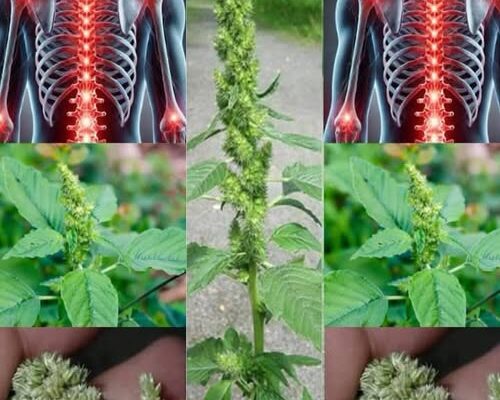The humble backyard plantain (Plantago major and Plantago lanceolata) is one of nature’s most overlooked treasures. Growing unassumingly in backyards, sidewalks, and open fields, this miracle plant boasts incredible medicinal properties and offers a wealth of health benefits, yet remains relatively unknown to many.
Natural Healer
Plantain is often referred to as a “medicine chest in a single plant” because of its potent healing properties. Its leaves contain bioactive compounds like aucubin, allantoin, and flavonoids, which are known for their anti-inflammatory, antibacterial, and wound-healing effects. When applied as a poultice, crushed plantain leaves can soothe insect bites, heal minor cuts and scrapes, and draw out splinters or toxins from the skin. Many swear by its ability to alleviate pain and reduce swelling almost instantly.
Digestive Benefits
Consumed internally, plantain offers a host of benefits for the digestive system. Its high mucilage content soothes the gastrointestinal tract, making it an excellent remedy for ulcers, acid reflux, and irritable bowel syndrome (IBS). Plantain seeds, similar to psyllium, are a natural source of soluble fiber and can help regulate digestion, alleviate constipation, and promote gut health.
Respiratory Support
In herbal medicine, plantain is often used to treat respiratory conditions. Its anti-inflammatory and soothing properties make it an effective remedy for coughs, bronchitis, and sore throats. A tea made from plantain leaves can provide relief by reducing irritation in the respiratory passages and loosening mucus.
Rich in Nutrients
Despite its small size and humble appearance, plantain is packed with nutrients. The leaves are rich in vitamins A, C, and K, as well as minerals like calcium and potassium. This makes it a great addition to salads, soups, or green smoothies. The plant’s seeds can also be ground into flour or added to baked goods for an extra boost of nutrition.
A Natural Remedy for Skin Conditions
Plantain’s skin-soothing abilities extend beyond minor cuts and wounds. It is often used to treat conditions like eczema, psoriasis, and rashes. The allantoin in plantain promotes skin cell regeneration, while its anti-inflammatory properties reduce redness and irritation. Herbal balms or creams containing plantain extract are popular for these purposes.
Easy to Identify and Use
One of the most remarkable things about plantain is its accessibility. This “weed” is easy to identify with its broad, ribbed leaves and green flower spikes. It thrives in a variety of environments, requiring no special care or cultivation. Best of all, it is completely free, growing abundantly in urban and rural areas alike.
Conclusion
The unassuming backyard plantain is truly a miracle plant, offering natural solutions to a range of health concerns. Its versatility, effectiveness, and availability make it a must-have in any natural medicine toolkit. Next time you see this “weed” in your yard, don’t be so quick to dismiss it. Instead, take a closer look and embrace the healing power of this unpretentious wonder of nature.



